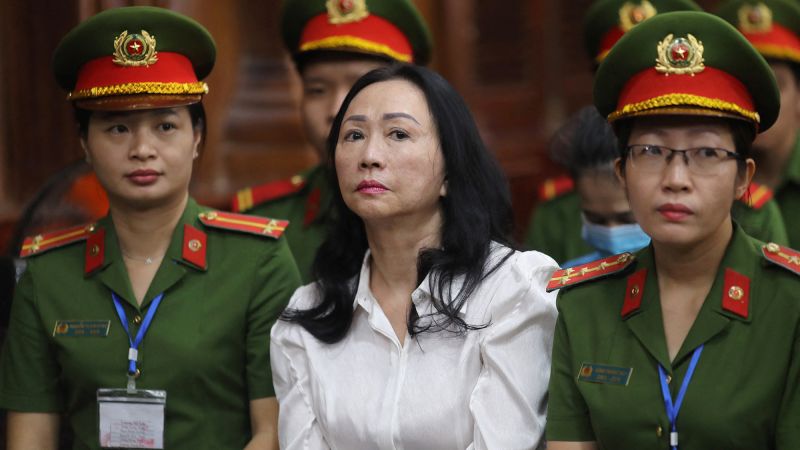Vietnam has been cracking down on corruption with its “blazing furnace” anti-corruption campaign, leading to the death sentence of a real estate tycoon involved in a $12.5 billion financial fraud case. Truong My Lan, the former chairwoman of Van Thinh Phat Holdings Group, was found guilty of bribery, violating bank regulations, and embezzlement. This has caused public shock and raised concerns among foreign investors in Vietnam’s booming economy. The trial of Lan was made public in state media, a departure from the country’s usual tight control of information.
Investigators discovered that Lan and her accomplices had siphoned off billions of dollars from Saigon Joint Stock Commercial Bank, causing significant damage to the country’s economy. This case is one of many revealed by Vietnam’s Communist Party in its anti-corruption campaign, with the resignation of top leaders linked to allegations of wrongdoing. These resignations, including that of President Vo Van Thuong, underscore the severity of corruption within the party and the government’s efforts to address it.
Vietnam’s anti-corruption campaign, initiated in 2016, aims to enforce credibility within the party and address issues of power and succession. Unlike China, Vietnam operates under a system where power is dispersed among different pillars of leadership. However, corruption remains endemic in Vietnam, leading to concerns about the country’s ability to attract foreign investment. Recent corruption scandals have eroded investor confidence, impacting the stock market and government spending.
The impact of the purged leaders on Vietnam’s image and economy has been significant, with concerns raised about the stability and direction of the country. The fall of pro-business leaders has left foreign investors wary, leading to a decline in stock performance and government spending. While current leaders downplay the impact of these resignations, the uncertainty surrounding the country’s leadership raises questions about its future.
As Vietnam navigates the aftermath of the corruption scandals, all eyes are on the next generation of leaders and their stance on anti-corruption efforts. The appointment of a new president and the upcoming congress in 2026 will determine the country’s path forward. Political infighting is expected to continue until then, causing further instability in the government. The anti-corruption campaign has expanded beyond party echelons, reaching the corporate world and demonstrating the pervasive nature of corruption in Vietnam. The country faces challenges in rebuilding its image and attracting foreign investment amidst ongoing political turmoil.













